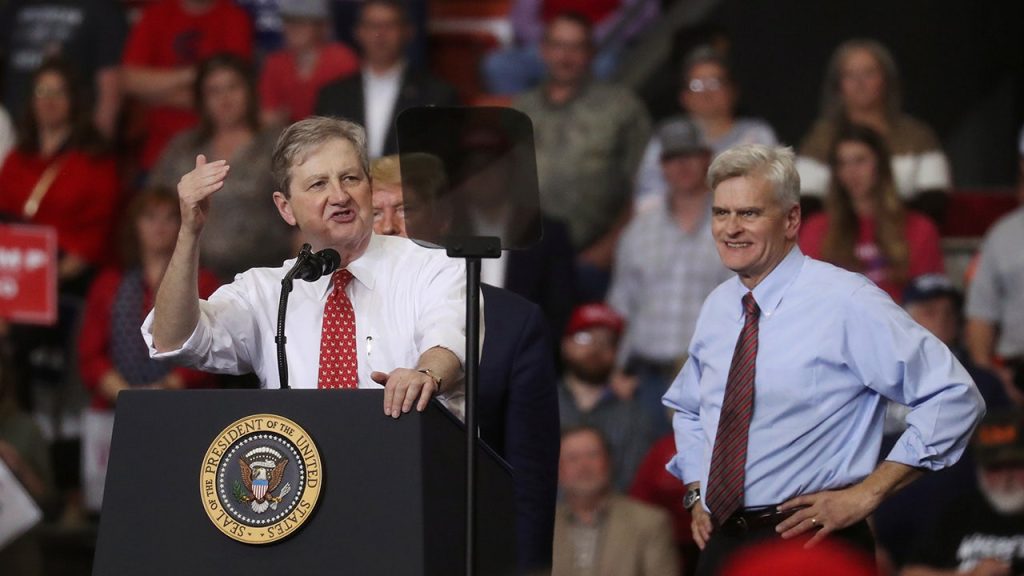Paragraph 1: The Looming Speakership Vote and Johnson’s Quest for Support
House Speaker Mike Johnson of Louisiana faces a crucial vote on Friday to determine his future as the leader of the House of Representatives in the new Congress. Securing the speakership hinges on obtaining a majority of votes cast, a task complicated by potential absences, vacancies, and the possibility of members voting "present," which lowers the required threshold. Johnson’s position is precarious, as losing even a single GOP vote could jeopardize his chances. This precarious situation has spurred him to seek endorsements and bolster his support within the Republican Party.
Paragraph 2: Public Endorsements and Notable Senate Backing
Johnson has received public pronouncements of support from key figures within the Republican Party. Senators John Kennedy and Bill Cassidy, both from Louisiana, have voiced their confidence in Johnson’s leadership. Senator Kennedy praised Johnson’s performance and expressed optimism about his ability to steer the House towards economic growth and community safety. Senator Cassidy, echoing former President Trump’s endorsement, emphasized Johnson’s conservative credentials and integrity. The engagement of senators in this traditionally House-specific matter is noteworthy and underscores the significance of the speakership election.
Paragraph 3: Mixed Signals from Republican Senators and the Spectre of Alternative Candidates
While most Republican senators refrained from openly criticizing Johnson during the recent government spending debates, some expressed reservations about his leadership. Senators Rand Paul and Mike Lee hinted at the possibility of alternative candidates, including figures outside the House, even suggesting names like Elon Musk. Senator Tommy Tuberville’s noncommittal stance, citing limited familiarity with Johnson, further illustrated the uncertainty surrounding his support within the Senate.
Paragraph 4: Trump’s Endorsement: A Double-Edged Sword
Former President Trump’s endorsement of Johnson has added another layer of complexity to the speakership race. While carrying significant weight within the Republican Party, Trump’s endorsement is not universally accepted and has even prompted dissent. Representative Thomas Massie of Kentucky, despite his respect for Trump, openly opposed Johnson, citing past collaborations with Democrats on issues like Ukraine funding, surveillance, and budget overruns. This demonstrates the limitations of Trump’s influence and highlights the divisions within the Republican ranks.
Paragraph 5: Johnson’s Challenges Within the House and the Uncertainty Ahead
Beyond securing a majority vote, Johnson faces the challenge of unifying a fractured Republican caucus. Several House members remain undecided about their support, further complicating his path to the speakership. Massie’s vocal opposition, rooted in policy disagreements, exemplifies the internal resistance Johnson must overcome. The narrow margin for error, coupled with internal dissent, creates a high-stakes environment for Friday’s vote.
Paragraph 6: The Stakes of the Speakership Vote and the Future of the House
The upcoming speaker vote holds immense significance for the trajectory of the House and the Republican Party. Johnson’s success will depend on his ability to consolidate support, navigate internal divisions, and address the concerns of skeptical members. The outcome will not only determine the leadership of the House but also set the tone for the upcoming legislative session. The narrow margins and potential for surprises create an atmosphere of suspense and underscore the challenges facing the Republican Party as it seeks to establish its agenda in the new Congress.

